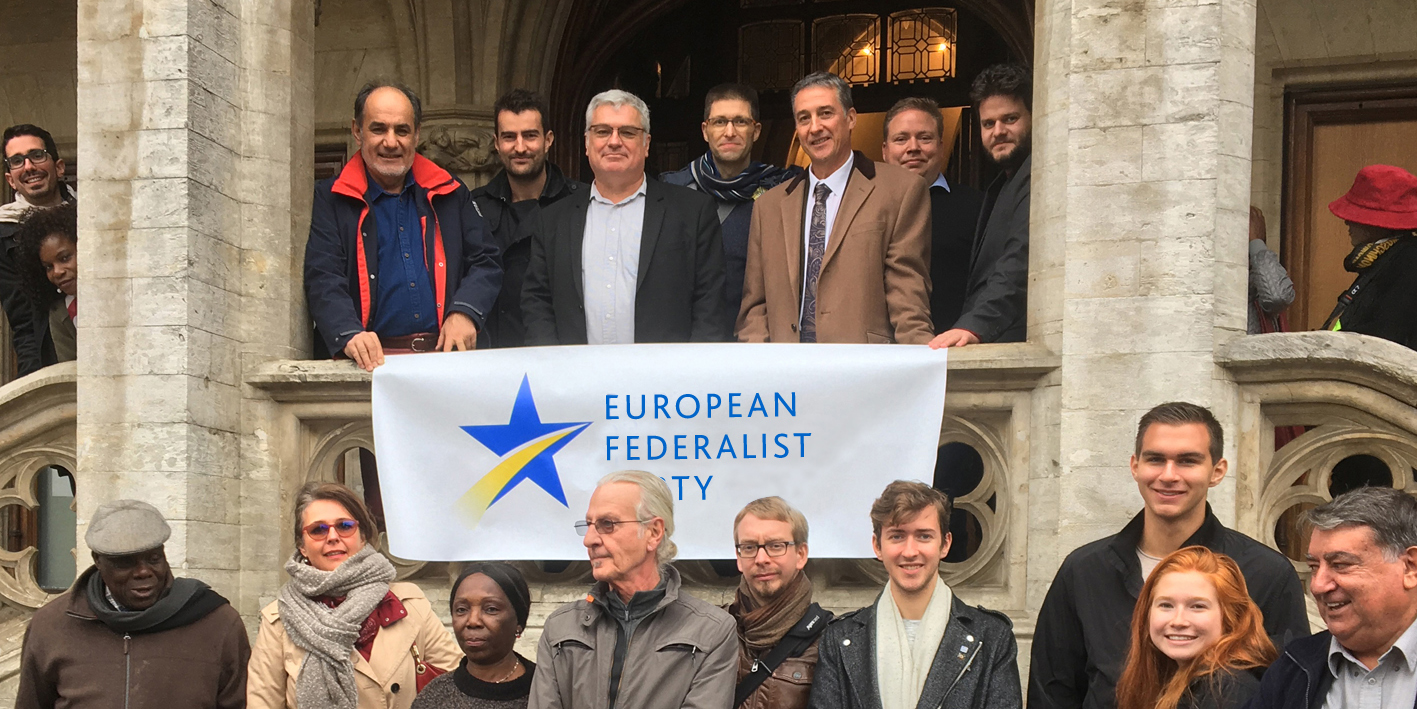
Our 6th Convention in Brussels
Members of the European Federalist Party met in Brussels on 7 and 8 October.
Many European branches were present. French, English, German, Italian, Spanish, Lithuanian, Romanian and others were able to discuss current European issues: Brexit, French and German elections and the 2019 European elections.
Welcomed at the “Circle of Travellers” by President Yves Gernigon, the participants were able to take part in the debates on Brexit and the elections to the Bundestag. The speakers from the countries concerned were able to share the feelings of the British and German populations.
According to Stephan Nedregaard (London), it seemed that Brexit was rushing into a stalemate as the UK government did not seem ready to conduct fruitful negotiations with the European Union. But the feeling of belonging to Europe does not die. Some are hoping for a new referendum to choose between a new treaty uniting the UK and the EU and a “Remain”. Others are already anticipating the resignation of Theresa May, the current Prime Minister, who is in bad shape in the negotiations with Brussels. As far as Scotland is concerned, it turns out that if the Scots chose independence and the return to the EU, Westminster, the British Parliament would not oppose it.
Regarding the German elections , Bengt Beier (Munich) thought obviously Martin Schulz was not the man to lead the SPD list. Probably too marked by its European parliamentary culture of compromise. It failed to create momentum during the campaign and found sufficient differentiation points with the CDU/CSU programme. The SPD participated in the Große Koalition, the union government of the previous legislature. The AfD’s threat to the continuation of European integration is very real. This formation, originally created by a professor of economics, was not an extreme right-wing party, but simply opposed to the euro. It was only during the election campaigns that the supporters of the extreme right took power in this formation. Otherwise, negotiations on the formation of a government will take time. The SPD having declined a government participation, the FDP (liberal) and die Grünen (the Greens) will take part in the negotiations with Angela Merkel, who took first place with the CDU.
Mariapaola Cherchi (Brussels) presented a first configuration of the pro-Europe and federalist list that she intends to present during the municipal elections of 2018 in Belgium.
Finally, Jean-Jacques Page (Vannes – Brittany) introduced a broad reflection on the IEPT programme, focusing on European sovereignty, the defence of European civilisation and respect for local self-government. The participants were then able to continue the discussions during a convivial and warm dinner.
Sunday morning was devoted to a debate on activist good practices and preparations for the 2019 European elections.
